Navigating the Continent: Exploring the Power of Printable Africa Outline Maps
Related Articles: Navigating the Continent: Exploring the Power of Printable Africa Outline Maps
Introduction
In this auspicious occasion, we are delighted to delve into the intriguing topic related to Navigating the Continent: Exploring the Power of Printable Africa Outline Maps. Let’s weave interesting information and offer fresh perspectives to the readers.
Table of Content
Navigating the Continent: Exploring the Power of Printable Africa Outline Maps

Africa, the second-largest and second-most populous continent, boasts a rich tapestry of cultures, landscapes, and histories. Understanding its vastness and diverse geography is crucial for anyone interested in exploring its complexities, from students delving into its history and cultures to travelers planning their next adventure. Printable outline maps of Africa serve as invaluable tools for navigating this intricate continent, providing a visual foundation for exploration and learning.
The Significance of Printable Africa Outline Maps
Printable outline maps offer a unique and versatile approach to learning about Africa. They serve as blank canvases for various activities, fostering engagement and deeper understanding. Their benefits extend across multiple domains:
1. Educational Value:
- Visual Learning: Outline maps provide a visual framework for understanding the continent’s physical features, including mountains, rivers, deserts, and major cities. This visual representation aids in memorization and comprehension, making learning more engaging and effective.
- Interactive Learning: Printable maps become interactive learning tools when used for activities like labeling countries, marking important historical events, or tracing trade routes. This hands-on approach encourages active learning and reinforces knowledge.
- Contextual Understanding: By incorporating information about geographical features, political boundaries, and cultural nuances, outline maps provide a broader context for understanding historical events, economic activities, and social dynamics within Africa.
2. Travel Planning:
- Route Planning: Printable maps serve as essential tools for planning itineraries, identifying potential destinations, and understanding distances between locations. This visual aid facilitates efficient trip planning and allows for better resource allocation.
- Destination Exploration: By highlighting specific regions of interest, outline maps provide a visual guide for exploring cultural hotspots, natural wonders, and historical landmarks. This visualization helps travelers prioritize destinations and plan their experiences.
- Understanding Local Context: Printable maps can incorporate information about local languages, currency, and cultural norms, offering valuable insights for navigating unfamiliar environments and fostering respectful interactions with local communities.
3. Research and Analysis:
- Data Visualization: Outline maps can be used to visually represent various data sets related to Africa, such as population density, economic indicators, or environmental challenges. This visual representation allows for effective data analysis and communication.
- Trend Identification: By overlaying different data sets on a printable map, researchers can identify trends, patterns, and correlations across various geographical regions. This approach facilitates in-depth analysis and informed decision-making.
- Comparative Studies: Outline maps enable comparative analysis of different regions within Africa, highlighting similarities and differences in development, resource distribution, or environmental conditions. This comparative approach fosters a deeper understanding of the continent’s complexities.
Beyond the Basics: Expanding the Use of Printable Africa Outline Maps
Printable outline maps can be further enhanced to cater to specific needs and learning objectives:
- Thematic Maps: Creating thematic maps by coloring or shading different regions based on specific criteria, such as language families, religious affiliations, or climate zones, provides a visual representation of diverse cultural and environmental factors.
- Historical Maps: Incorporating historical events, trade routes, or migration patterns on a printable map allows for a deeper understanding of Africa’s rich history and its impact on the present.
- Interactive Activities: Designing interactive activities like quizzes, games, or puzzles based on printable maps can foster engagement and enhance learning, particularly for younger learners.
FAQs about Printable Africa Outline Maps
1. Where can I find printable Africa outline maps?
Numerous online resources offer free and downloadable printable Africa outline maps. Websites like Canva, Teachers Pay Teachers, and Printable World offer a wide variety of maps with different levels of detail and customization options.
2. What are the best printable Africa outline maps for educational purposes?
For educational purposes, choose maps with clear outlines, minimal clutter, and options for labeling countries, cities, and major geographical features. Maps with additional information about climate zones, language families, or historical events can further enhance the learning experience.
3. How can I use printable Africa outline maps to teach children about the continent?
Engage children in hands-on activities like coloring countries, labeling cities, or creating stories about different regions. Use the maps to introduce them to African cultures, wildlife, and landscapes, sparking their curiosity and fostering a love for learning about the continent.
4. Are there printable Africa outline maps with specific focus areas?
Yes, many websites offer printable maps focusing on specific regions, such as Southern Africa, West Africa, or the Nile River basin. These maps provide a more detailed exploration of particular areas within the continent.
5. Can I customize printable Africa outline maps to suit my needs?
Many online platforms offer customization options for printable maps, allowing users to adjust size, color, and add specific details like landmarks, borders, or labels. This customization ensures the maps cater to individual needs and learning objectives.
Tips for Using Printable Africa Outline Maps
- Choose the Right Map: Select a map with appropriate detail and scale for your purpose. For general learning, a basic outline map suffices, while more specific research may require maps with additional information.
- Incorporate Interactive Activities: Enhance learning by incorporating hands-on activities like labeling, coloring, or creating stories based on the map.
- Promote Collaboration: Encourage group activities where students work together to label, research, or create presentations based on the map.
- Connect to Real-World Events: Relate the map to current events, news stories, or global challenges to provide a contextual understanding of Africa’s importance in the world.
- Utilize Technology: Explore online mapping tools and interactive platforms that allow for dynamic exploration and visualization of African data.
Conclusion
Printable Africa outline maps provide a versatile and engaging tool for learning about the continent’s geography, history, and culture. From educational settings to travel planning, these maps offer a visual framework for exploration, fostering deeper understanding and appreciation for the diverse complexities of Africa. By embracing their versatility and adapting them to individual needs and learning objectives, printable Africa outline maps can unlock a world of knowledge and inspire a deeper connection with the continent.
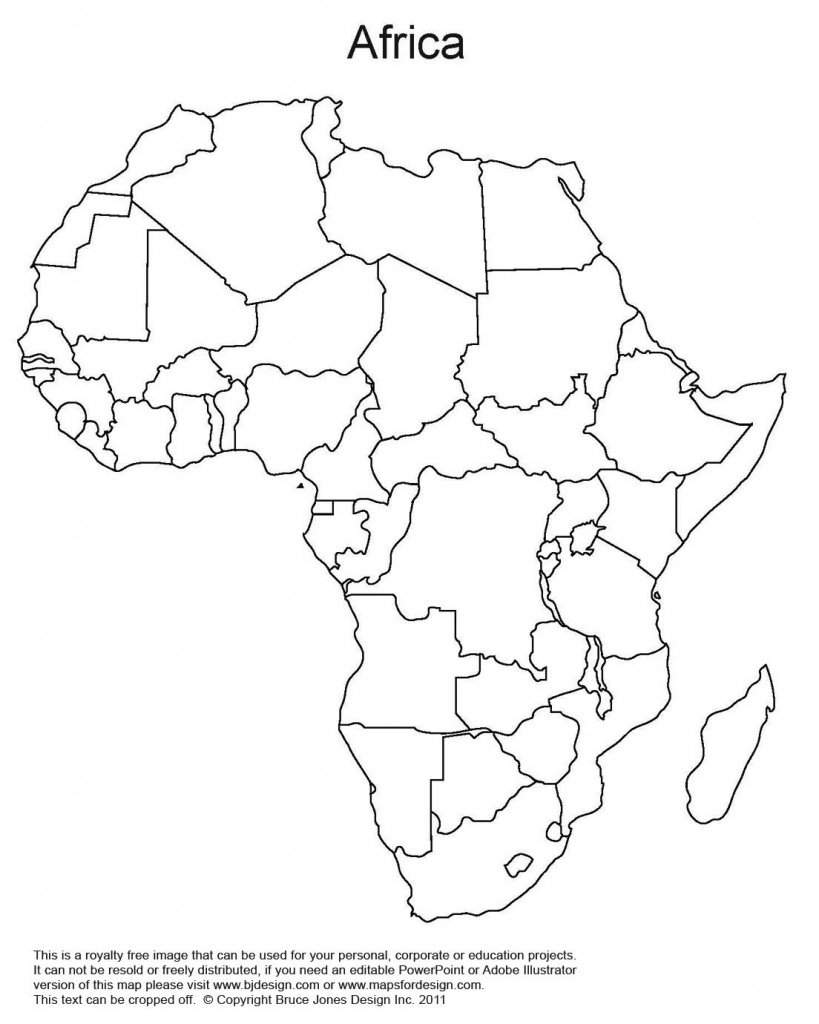
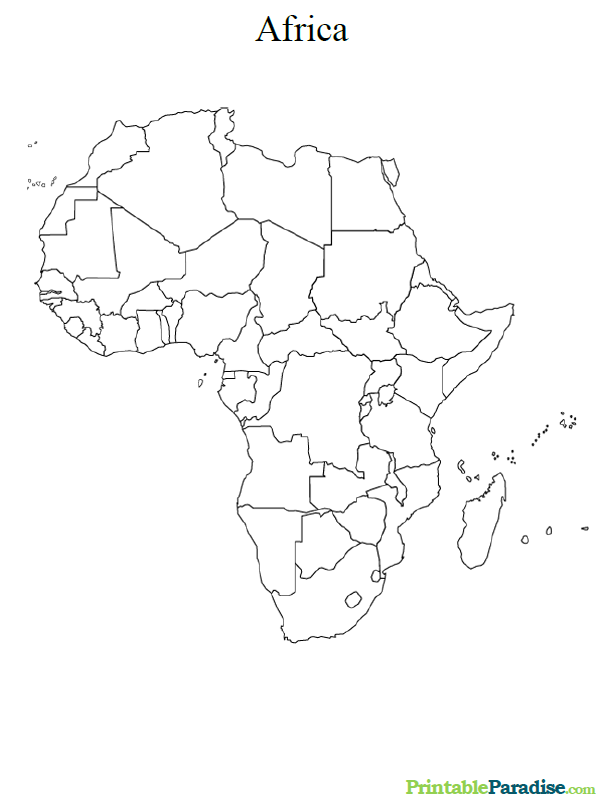
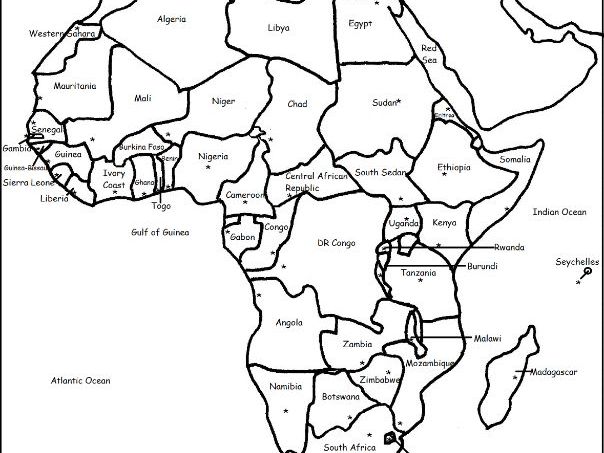
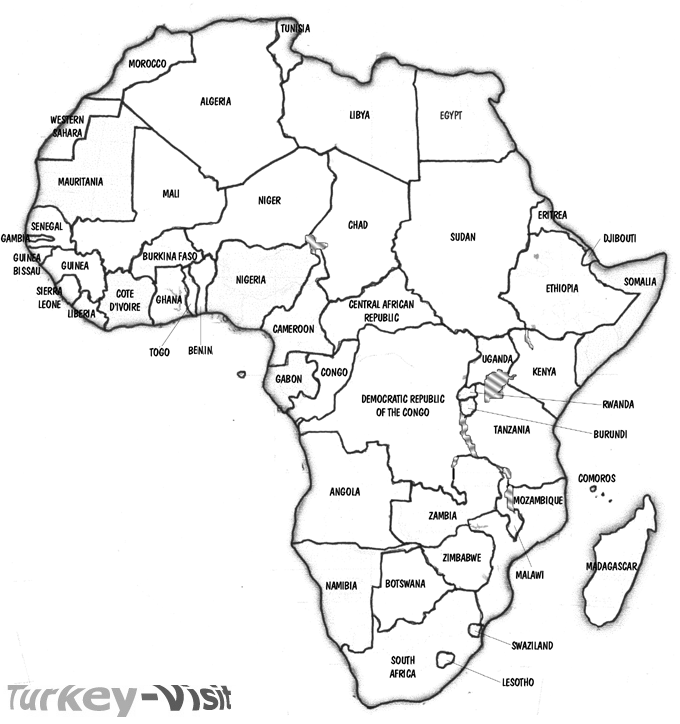

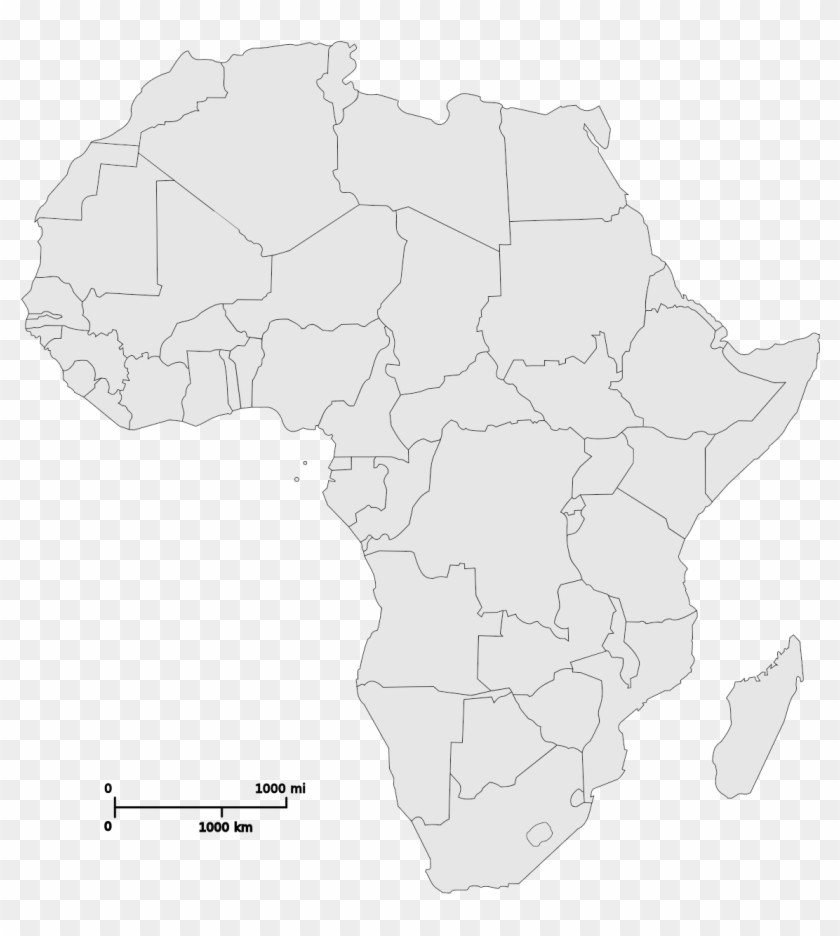
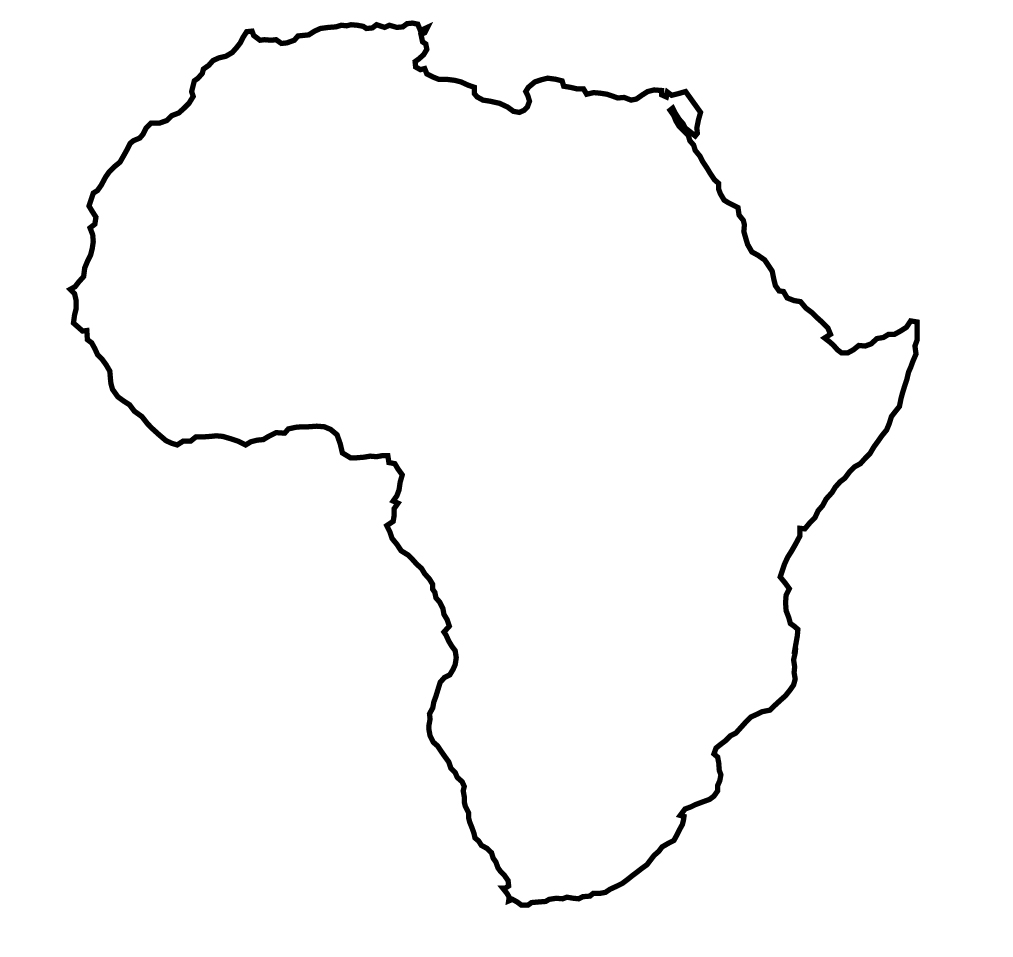
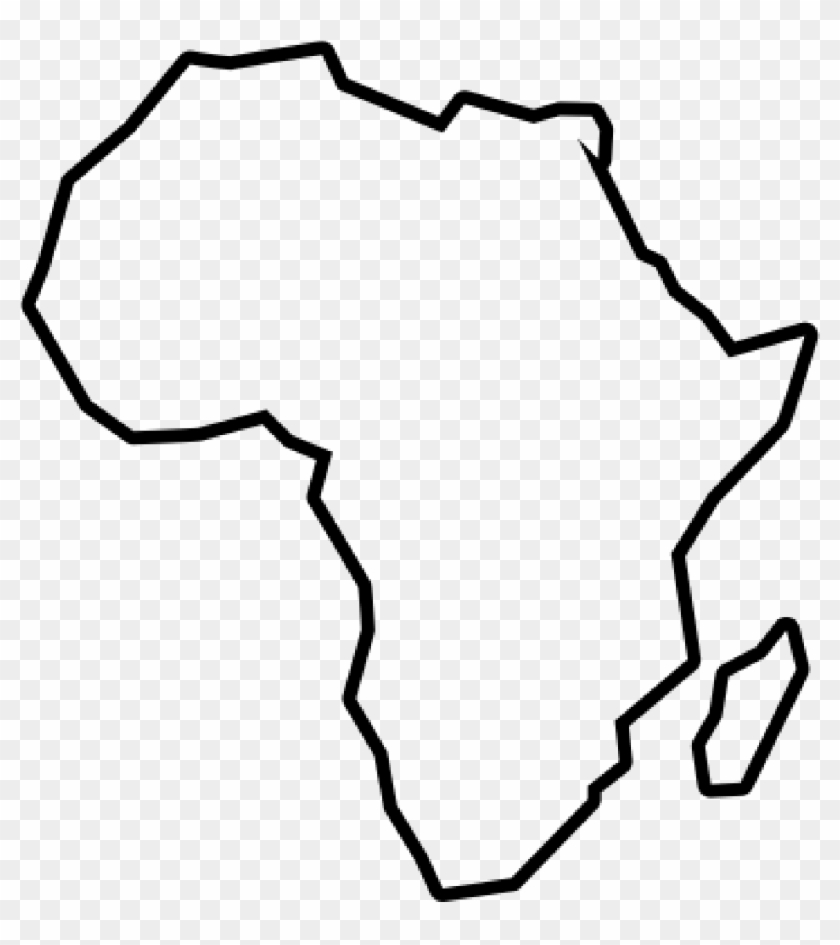
Closure
Thus, we hope this article has provided valuable insights into Navigating the Continent: Exploring the Power of Printable Africa Outline Maps. We hope you find this article informative and beneficial. See you in our next article!